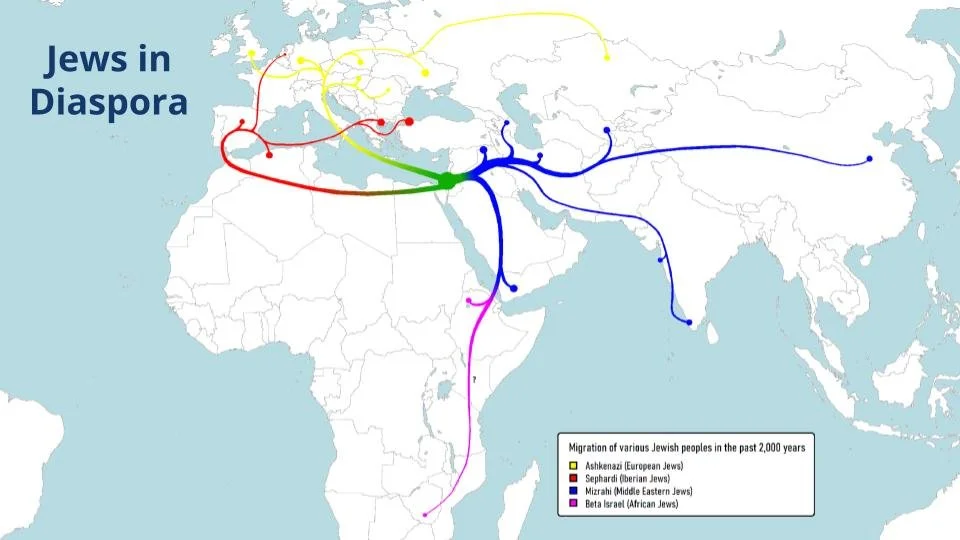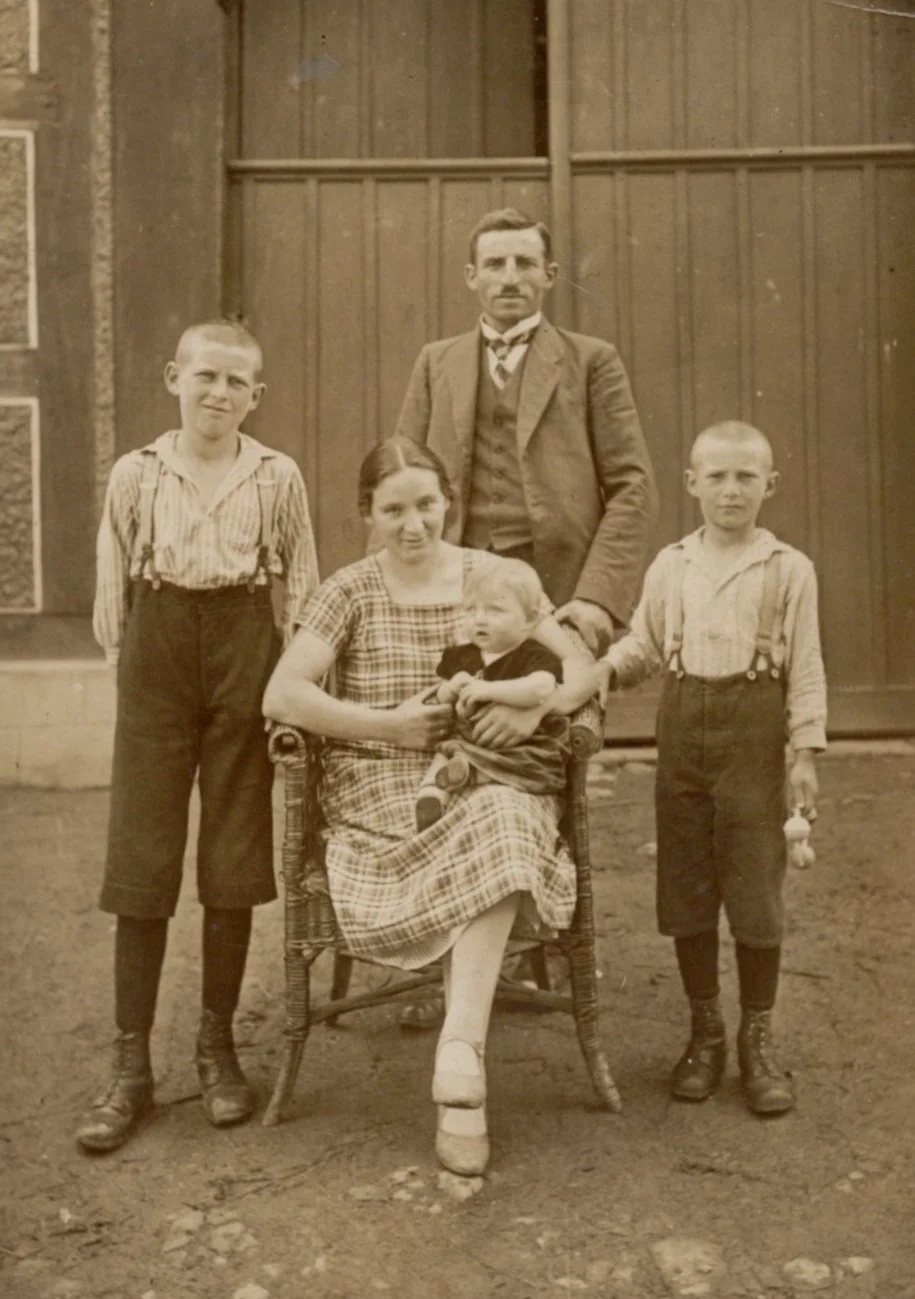
Rise of Nazism
A German child stacks bricks of currency during hyperinflation.
The Nazi Party in Context
The Nazi Party, or National Socialist German Workers' Party, did not arise in a vacuum.
Germany in the 1920s and early 1930s was in deep crisis. After World War I, the Treaty of Versailles imposed heavy reparations and national humiliation, which fostered resentment and instability. Inflation soared, unemployment was widespread, and the democratic Weimar Republic struggled to maintain authority.
In this climate of fear and frustration, extremist ideologies found fertile ground. The Nazis exploited these conditions by promising national revival, economic recovery, and restored pride.
Why Did People Vote for the Nazis?
Many Germans supported the Nazi Party because they believed it would restore order and bring back national strength.
The Nazis promised to revive the economy, punish those they blamed for Germany's defeat in World War I, and protect the nation from communism. Their propaganda emphasized unity, traditional values, and a return to greatness.
They appealed to farmers, war veterans, the unemployed, and the middle class—groups especially affected by the economic crisis. Fear, hope, and nationalism drove people to vote for Hitler and his movement.
Judaism begins in the biblical land of Israel and traces its origins to the covenant between God and Abraham, the first patriarch of the Jewish people. The Torah, Judaism's sacred text, tells the story of the Jewish people from their earliest ancestors. Abraham’s descendants, Isaac and Jacob, continue the story, eventually becoming the Israelites. Their journey, hardships, and relationship with God form the foundation of Jewish identity and belief.
‘Israel in Egypt’ (1867), by Edward John Poynter, imagines a biblical scene of Israelite slaves constructing cities in Egypt. Photo by Guildhall Library & Art Gallery/Heritage Images/Hulton Archive via Getty Images
Covenant, Slavery, and Liberation
According to tradition, the Israelites were enslaved in Egypt before being liberated through divine intervention.
God appointed Moses to lead the Israelites out of bondage, and on Mount Sinai, God gave them the Ten Commandments. These laws became the cornerstone of Jewish ethics and identity.
The story of Exodus is retold each year at Passover and underscores the central Jewish themes of liberation, resistance to oppression, and covenant with God.
Jewish Beliefs and Practice
Judaism is based on the belief in one God who created the world and is involved in its ongoing care.
Jewish practice centers around following God's laws as revealed in the Torah. These laws govern moral behavior, ritual observance, and daily life. Justice, compassion, and community responsibility are core values.
Many Jews believe that the Messiah has yet to come and that they have a role to play in repairing the world (tikkun olam).
Justice
Core Values
Compassion
Community
Temples and the Shift to Synagogue Life
The First and Second Temples in Jerusalem were central to ancient Jewish worship and community life.
When the Second Temple was destroyed by the Romans in 70 CE, Jews no longer had a single central place of worship. This led to the development of synagogues as local houses of prayer and learning.
The Western Wall in Jerusalem remains a symbol of Jewish continuity and longing for spiritual connection.
The Jewish Diaspora
Following the Roman destruction of Jerusalem, Jews were exiled and scattered throughout the world. This dispersion is known as the Diaspora. Despite being geographically dispersed, Jews maintained unity through shared texts, traditions, and customs. Distinct communities emerged, such as Ashkenazi (European), Sephardi (Iberian), Mizrahi (Middle Eastern), and others, each with unique practices but a shared identity.
Actress Mila Kunis
Jewish Identity: People, Not Race
Judaism is not a race but a religious and cultural identity.
While the Nazis falsely claimed Jews were a racial group, Judaism is practiced and embraced by people of diverse backgrounds and ancestries. Some Jews identify through religious practice, others through cultural heritage, and many through both.
Understanding Judaism as a peoplehood helps explain its diversity and unity.
Musician Lenny Kravitz
Ukrainian President Volodymyr Zelenskyy
Jewish Holidays
Jewish holidays reflect both historical events and spiritual principles. Each holiday reinforces themes of freedom, faith, and community, and is marked with meaningful rituals and family traditions.
Passover
Commemorates the Exodus from Egypt.
High Holy Days
Rosh Hashanah and Yom Kippur, known as the High Holy Days, focus on reflection, repentance, and renewal.
Hanukkah
Celebrates the rededication of the Temple.

Remembrance and Memorialization
Two important days commemorate the Holocaust: International Holocaust Remembrance Day on January 27 and Yom HaShoah in Israel during spring.
These days honor the six million Jews murdered during the Holocaust and the countless others who resisted and survived. Remembering this history is vital to preventing future atrocities and ensuring that Jewish lives are seen in their full humanity.
The Modern Jewish World & Israel
In 1948, the modern State of Israel was established, providing a homeland for Jews after centuries of exile and persecution.
Today, about 90% of the global Jewish population lives in Israel or the United States. Jewish communities thrive in many democracies, though antisemitism remains a challenge.
Israel is a diverse nation with Jews from around the world living alongside Arab and other minority communities.
Floridian Stevan Simon with his father, Eric.
Floridian Harry Lowenstein (far right) with his family.
The Jewish People Before the Holocaust
Before the Holocaust, Jewish life in Europe was vibrant and diverse.
Jews lived in cities and towns across the continent and contributed richly to their societies. Most were highly assimilated and considered themselves citizens of their countries.
Despite making up a small percentage of the population, Jews were targeted by the Nazis, who used false stereotypes and propaganda to justify their genocide.

Diversity, Dignity, and Loss
Judaism has survived for thousands of years through resilience, memory, and community.
The Holocaust attempted to reduce Jewish life to a single narrative of victimhood, but in truth, Jewish identity is vast, diverse, and deeply human.
By learning about Judaism and its people, we recognize both what was lost and what endures: a legacy of courage, culture, and hope.
Made in partnership with the Humanus Network. Last updated July 2025.










